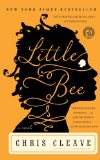Summary | Excerpt | Reviews | Beyond the book | Read-Alikes | Genres & Themes | Author Bio

In Eclipse Richard North Patterson cranks up the
heat, as it were, on an already hot-button issue: the world's shameful and quite
literally fatal attraction to fossil fuels. Thanks to Al Gore and his ilk we are
all aware of the damaging toll petroleum use takes on our planet's natural
environment. However, Patterson points out a fatal attraction in which the
bunny-in-the-stewpot is much more immediate – it is the murder of tens (even
hundreds) of thousands of innocent men, women and children who have nothing more
to do with oil than to live where it can be harvested. They may or may not stand
in the way between world class avarice and its true love (oil). They may or may
not even pose a threat. No matter - they are expendable. Their lives, and
whether they live or die, don't mean a jot in the corporate and geopolitical
worlds where oil is more sexy than sex; worlds where the hunger for oil eclipses
all else.
Indeed, it is this callous – sometimes calculating, sometimes unintentional –
disregard for the lives of the common people of this fictional African state of
Luandia by nearly everyone portrayed here that leaves a nasty aftertaste that
outlives Patterson's narrative. The layers of greed, self-service and corruption
become oppressive. Sure, everyone is familiar with the ubiquitous demon American
oil company whose stated goal is to make as much money as feasibly possible. If
there is any doubt, check out a May 3, 2006 Matt Lauer
Today Show interview with Exxon-Mobil CEO Rex Tillerson in which that
top exec admits same in so many words (a report on the interview can be found here). Add to that the local despotic leader, in
this case Luandia's General Savior Karama, who seizes the opportunity to exploit
not just his country and its people, but his own iron fisted hold on power. Then
there are the local, lower level renegades who pirate crude oil for personal
gain. In the meantime farmland and rivers are despoiled to the point where they
become unusable and people starve for lack of a sustainable local economy.
The starving is bad enough but it is the peril in which so-called environmental
activist Bobby Okari puts his people that seems most selfish. When he calls for
a protest during a solar eclipse in order to prove a point to his arch-enemy
Karama it is impossible to believe that he doesn't grasp the danger. He is not a
naïve newcomer to social activism. He is not – or should not be – a dewy eyed
freshman, inexperienced in the culture of violence that has plagued Karama's
regime. Yet he disregards the real and present danger and risks not just his own
life but those of his entire village, including his wife and father. When the
risk deteriorates into a bloodbath he seems to feel little remorse.
It is interesting to note that by his more detailed portrayals of Damon Pierce,
Marissa, Karama and mass murderer/rapist Paul Okimbo it is apparent where
Patterson stands. Clear cut good guys and bad guys are de rigueur
in any thriller. But Okari is painted with a broad brush. As much as
possible his personality and motivations are closeted, leaving the reader to
determine sainthood versus venality. It makes Okari a much more interesting
character and adds depth to a plot that could dumb down to patent
black-and-white simplicity.
Simplicity is something to which Patterson never succumbs, even though at times
it might feel a blessing. But in the cosmos of Eclipse there are almost
more strata of complex desire, motivation and intention than it is possible to
track. And each desire, motivation and intention eclipses something else until
no character is able to see things plainly. It is what sets a Richard North
Patterson thriller apart from its competitors on bookstore shelves and keeps him
hitting the New York Times bestseller list.
Interesting Links (relating to sidebar)
![]() This review
first ran in the February 19, 2009
issue of BookBrowse Recommends.
This review
first ran in the February 19, 2009
issue of BookBrowse Recommends.

If you liked Eclipse, try these:

by Sefi Atta
Published 2012
A new novel from the winner of the Wole Soyinka Prize for Literature in Africa.

by Chris Cleave
Published 2010
The publishers "don't want to spoil" the story by giving too much away - so we won't - but in brief it features a young Nigerian orphan, a well-off British couple, and the real distances in a globalized world which can be crossed in single day. Published as The Other Hand in the UK, Australia and India; and Little Bee in the USA and Canada.
Your guide toexceptional books
BookBrowse seeks out and recommends the best in contemporary fiction and nonfiction—books that not only engage and entertain but also deepen our understanding of ourselves and the world around us.